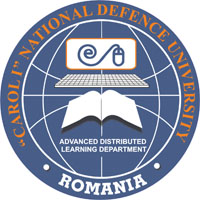HOW COULD INTERNET OF THINGS CHANGE THE E-LEARNING ENVIRONMENT
HOW COULD INTERNET OF THINGS CHANGE THE E-LEARNING ENVIRONMENT
Author(s): Mircea Radu Georgescu, Daniela PopescuSubject(s): Education
Published by: Carol I National Defence University Publishing House
Keywords: Internet of Things; Internet of Things in e-Learning; Internet of Things security
Summary/Abstract: The Internet of Things is almost a new paradigm that is revolutionizing our society and our life. It is intended that all objects around us are connected to the network, providing worldwide access to information. This concept is gaining space, thanks to the large number of devices connected to the web, ranging from mobile devices to appliances. In the same time, the development of Internet of Things (IoT) give rise to a number of security-related and ethical issues which gain a new dimension in the light of the increased complexity of these technologies. The biggest problem is that IoT does not concern objects only; it is about the relations between the everyday objects surrounding humans and humans themselves. It`s important to emphasize that the majority of connected objects are not personal (as smartphones and PCs) and are unattended. Their physical security is not guaranteed (especially for the public networks) and the control of the objects may be lost sometimes. Cascade failures may appear, caused by the interconnectivity of a large number of devices, difficult to be simultaneously protected over the air transmission, with all the related problems. Despite all this problems, in this paper, we focus on the education area, where IoT can be used to create new trends and tools for Long Life Learning process. Following a person - centred design process, the powerful possibilities opened by the Internet of Things are being included to eLearning in order to enhance the learning experience, and will bring more significant learning spaces and tangibility to the learning process.
Journal: Conference proceedings of »eLearning and Software for Education« (eLSE)
- Issue Year: 11/2015
- Issue No: 01
- Page Range: 68-71
- Page Count: 4

